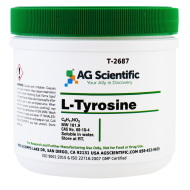Biomarkers today are used for diagnosis and disease detection, but capable of so much more. They can tell us when drugs are effective and safe, and when and for whom a precise therapy should be started. As we move closer to this precision, or personalized medicine, it's important for us to understand biomarker science and their applications.
What are biomarkers?
Biomarker is a term for biological markers which can show when a physiological activity has taken place and what is going wrong in the body of a sick person. They can be used to observe the progression of illness or the success of a particular medical treatment. In this way, biomarkers can provide physicians with crucial and detailed information on the hidden identity of a disease or illness and how best to tackle it.A familiar example is when your doctor measures your body temperature with a thermometer since fever is one biomarker for being sick. Other biomarkers are found in blood and urine samples, while others are found in cancer tumors and, more recently, in genetic markers (DNA and RNA). There are literally hundreds of biomarkers most of which are proteins.
Today, thanks to biomarkers, we have simple means of measuring and quantifying physiological changes. This tandem process of biomarker therapy and diagnosis represents an important and rare opportunity to expedite the development of tailored patient care.
Can they help us discover new medicines?
Yes, biomarkers play a big role in the discovery and development of new drugs. It may be a simple detection of a protein or a specific genetic mutation in a cancer cell that allow researchers to target potential remedies. Most of the remedies traceable to biomarkers are known as either small-molecule drugs or monoclonal antibodies. Both of these types are made in the laboratory.Here at AG Scientific, we have over 20 years of experience producing and delivering highly pure and potent biomarkers to our diverse clientele. We offer the world's most diverse portfolio of biomarkers available in the marketplace. Each one has been designed to identify and then bind to specific markers on or inside specified cells and can be customized to your satisfaction.
Tyrosine kinase inhibitors, for example, act against a specific cell-signaling pathway involved in tumor growth. EGFR inhibitors are just one type of tyrosine kinase inhibitor we offer that can help in the diagnosis of a wide range of cancers. Ideally, and in most cases, biomarkers can tell physicians which patients will benefit the most from a particular drug avoiding unwanted side effects and the financial burden.
Since each person will have a unique genetic make-up, each person's disease will also be slightly different even when they have the same diagnosis. So, for instance, if a patient has been diagnosed with breast cancer, biomarkers can indicate how a patient will respond to a particular kind of chemotherapy and help to identify more effective treatments. This is the cornerstone of personalized healthcare, a vision of medicine where each patient receives care based upon his or her unique genetic makeup.
Biomarkers are not only helping to predict, diagnose, and treat disease, they are also helping patients take preventative measures and avoid unnecessary treatments. Taken together, each of these factors gives to the patient a more positive experience and helps lower the cost of healthcare.
What does the future hold for biomarkers?
One goal of biomarkers is to match the right molecular marker to the right drug for the right person. This is an achievable goal, attainable as soon as researchers unshroud the physiology of disease right down to the cells, their signals, and the interactions within the cellular matrix. Genetic karyotyping can help researchers and medical doctors understand how a patient's own genetic profile is interacting with the disease. Certain genetic markers could become activated or inactivated several times during the course of therapy and may affect the overall rate of recovery. This is especially relevant for cancer treatments as biomarkers and certain genetic alterations can sometimes indicate the presence of an otherwise symptomatically dormant cancer.Right now researchers are focused on targeting the genetic traits of diseases. In recent years, biomarkers are helping researchers to step up the effort with molecular profiling and drug screening. This is allowing much of the current research to proceed on a parallel track. Researchers are aiming to investigate biomarkers and develop new drugs concurrently so the appropriate diagnostic tests can become available at the same time.
Are there any limitations associated with biomarkers?
Biomarkers are becoming an increasingly valuable tool in diagnosing disease, but they do have limitations. For instance, many biomarkers are not disease-specific. There are times when a certain physiological condition or state could yield detectable levels of a certain protein.Likewise, there are other times when certain biomarkers do not reach detectable levels despite the presence of a specific ailment. As a result, additional laboratory testing may be required to rule out any false-positives or false-negatives. More recently, genetic markers are being used as identifiers of disease and usually are more reliable than transient physiological activity. Nevertheless, biomarkers are helping researchers to better understand the epigenetics and proteomics of disease, advancements that are typically made in combination with the other.
